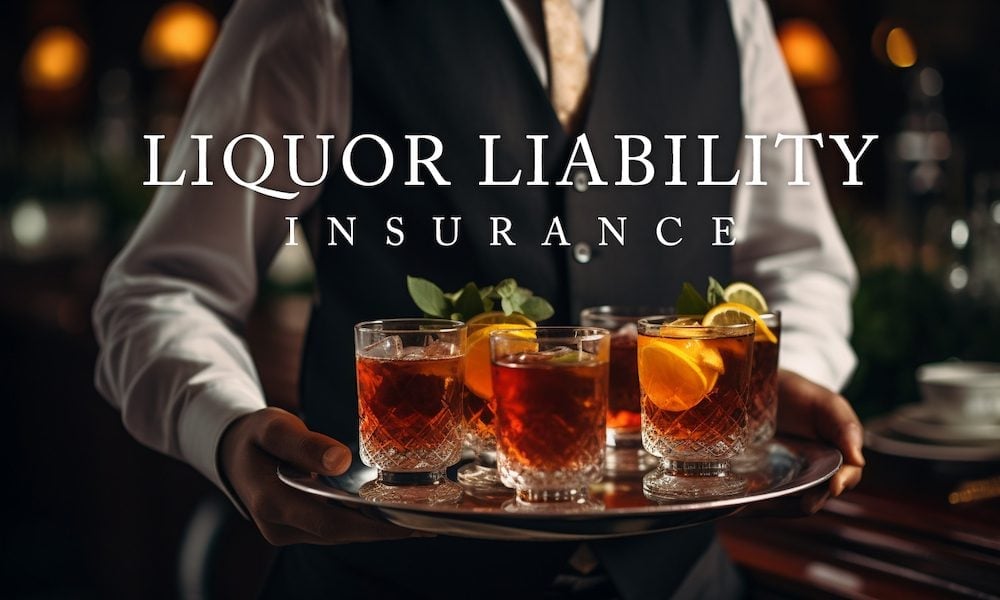5 Ways to Lower Your Liquor Liability Premiums

Running a business that serves alcohol—whether it’s a bar, restaurant, nightclub, or liquor store—comes with a unique set of risks. That’s where liquor liability insurance becomes essential. However, premiums for this type of coverage can be a significant expense, especially for small business owners. The good news is that with the right strategies, you can reduce those costs without compromising protection.
In this blog, we’ll explore 5 ways to lower your liquor liability premiums while improving overall safety and risk management.
1. Implement Staff Training Programs
One of the most effective ways to reduce your liquor liability insurance rates is to invest in regular and certified training programs for your staff. Insurance providers look favorably on establishments that prioritize responsible alcohol service.
Programs like TIPS (Training for Intervention ProcedureS) or ServSafe Alcohol teach bartenders, waitstaff, and managers how to spot signs of intoxication, avoid serving underage customers, and de-escalate potentially risky situations. Documented evidence of staff completion can lead to premium discounts from your insurer.
Why it helps: Properly trained staff reduce alcohol-related incidents, which in turn lowers your establishment’s risk profile—something insurers take seriously when calculating your liquor liability premiums.
2. Establish and Enforce a Written Alcohol Policy
Having a clear, enforceable alcohol service policy demonstrates that your business takes risk management seriously. This policy should cover topics such as:
Age verification procedures
How to handle visibly intoxicated patrons
Cut-off protocols
Transportation alternatives for impaired customers
Make sure all employees are familiar with these rules and understand the consequences of non-compliance. Update the policy regularly, especially if there are changes in state or local laws.
LSI keywords to consider: bar alcohol policy, tavern risk reduction, alcohol service guidelines
Why it helps: A written policy shows underwriters that your business is proactive in preventing liability claims, which can result in lower insurance costs.
3. Maintain a Clean Claims History
Just like auto or home insurance, your claims history plays a major role in determining your liquor liability premiums. Insurers will look at the number and severity of past incidents tied to alcohol consumption on your premises.
To avoid claims:
Monitor alcohol consumption closely
Employ security staff for busy hours
Install cameras to document interactions and resolve disputes
Maintain proper lighting to reduce accidents
The fewer incidents and claims you report, the better your standing with insurance carriers.
Why it helps: A clean loss history indicates to providers that you’re a low-risk business, which may qualify you for reduced premiums or more favorable policy terms.
4. Bundle Policies for Better Rates
Many small business owners don’t realize that bundling insurance policies with the same provider can unlock significant savings. Combining your liquor liability coverage with general liability, property insurance, or even workers’ compensation into a Business Owner’s Policy (BOP) often results in discounted rates.
You may also be able to negotiate better terms by consolidating policies through one broker or agency that specializes in bar and restaurant insurance.
LSI keywords to consider: bundled bar insurance, business insurance packages, small business liability savings
Why it helps: Bundling not only simplifies your insurance management but can lead to substantial cost reductions across multiple forms of coverage, including liquor liability.
5. Limit Happy Hours and Drink Specials
While promotions like happy hours and 2-for-1 deals may attract customers, they also increase the likelihood of alcohol-related incidents. Insurers often charge higher premiums for establishments that promote excessive drinking through aggressive pricing or open bar offers.
If cutting out drink specials entirely isn’t feasible, consider reducing their frequency or limiting the number of drinks per customer during promotions. You can also shift focus to food promotions or live entertainment to draw crowds instead.
Why it helps: By reducing alcohol consumption incentives, you demonstrate to underwriters that your business is minimizing high-risk behaviors, which can help keep your liquor liability insurance premiums in check.
Final Thoughts
Lowering your liquor liability premiums isn’t about cutting corners—it’s about demonstrating that your business operates responsibly and is committed to reducing alcohol-related risks. Through staff training, policy enforcement, risk management, policy bundling, and smart promotion strategies, you can position your establishment as a low-risk, well-managed venue in the eyes of your insurance provider.
Keep in mind that liquor liability insurance is not just a regulatory requirement—it’s a crucial layer of protection for your livelihood. But paying less for it while maintaining proper coverage is possible with a proactive approach.
If you’re unsure where to start, consider consulting with an insurance broker who specializes in liquor liability for small businesses. They can assess your current policy and help tailor a coverage plan that fits both your needs and your budget.
